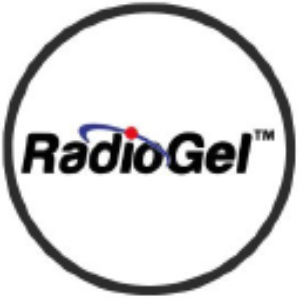Vivos Inc. Submits the Application to the FDA for Authority to Initiate Human Clinical Trials
Vivos Inc. (OTCQB: RDGL) has submitted an Investigational Device Exemption (IDE) application to the FDA, following amendments addressing previous FDA comments (Q211938/S001). This marks their first filing post the FDA Breakthrough Device Designation for their Radiogel™ Precision Radionuclide Therapy. The application includes studies on RadioGel® genotoxicity and retention at injection sites in VX2 tumors in rabbits. Dr. Korenko noted the readiness to address any comments from the FDA's twelve reviewers. Approval of this IDE will allow Vivos to seek clearance from the Mayo Clinic's Independent Review Board (IRB) to initiate human clinical trials targeting metastatic tumors in lymph nodes from papillary thyroid cancer.
- Submission of IDE application to FDA post Breakthrough Device Designation.
- Inclusion of detailed studies on RadioGel® genotoxicity and retention in the IDE.
- Improved communication with the FDA since receiving the breakthrough designation.
- Addressing 63 comments from previous FDA feedback indicates extensive revisions and potential challenges.
- Possible further comments from the FDA's twelve reviewers could delay progress.
Richland WA, June 28, 2024 (GLOBE NEWSWIRE) -- Vivos Inc. (OTCQB: RDGL), Vivos Inc. filed the application for an Investigational Device Exemption (“IDE”).
The filing was an amendment, addressing the FDA comments to our previous application (Q211938/S001). Today’s IDE submission marks our first filing with the FDA following the grant of the FDA Breakthrough Device Designation for the Radiogel™ Precision Radionuclide Therapy. We are appreciative of the improved communication with the FDA since receiving the breakthrough designation. Our IDE filing contained reports on two complex studies, RadioGel® genotoxicity and the retention of RadioGel® at the injection site in VX2 tumors in rabbits. This current IDE submission addressed the 63 FDA comments received in previous FDA correspondences. In some cases, we repeated underlying testing to strengthen our answers with current data. Dr. Korenko stated, “We are mindful that most of the twelve FDA reviewers have joined in the past two years and we anticipate they will have some comments after reviewing the extensive material in our filing, which we are prepared to address promptly.”
In closing Dr. Korenko stated, “We are eager to secure the FDA’s IDE approval so that we can submit our plan to the Mayo Clinic's Independent Review Board (IRB) for clearance to initiate the first in human clinical trials. This is an exciting time for Vivos and we are committed to bringing a new treatment option to patients in the fight against challenging cancer types. Initially our collaboration with Mayo will be targeting solid metastatic tumors in lymph nodes associated with papillary thyroid cancer.
Dr. Michael Korenko
Vivos Inc.
Michael K. Korenko, Sc.D.
President & CEO
Email: MKorenko@RadioGel.com
Follow Vivos Inc @VivosIncUSA, Radiogel® and Isopet® on X (Twitter):
About Vivos Inc. (OTCQB: RDGL)
Vivos Inc. has developed an Yttrium-90-based injectable Precision Radionuclide Therapy™ medical device to treat tumors in animals (IsoPet®) and humans (RadioGel®). Using the company's proprietary hydrogel technology, PRnT™ uses highly localized radiation to destroy cancerous tumors by placing a radioactive isotope directly inside the treatment area. The injection delivers therapeutic radiation from within the tumor without the entrance skin dose and associated side effects of treatment that characterize external-beam radiation therapy. This feature allows the safe delivery of higher doses needed for treating non-resectable and radiation-resistant cancers.
RadioGel® is a hydrogel liquid containing tiny yttrium-90 phosphate microparticles that may be administered directly into a tumor. The hydrogel is a yttrium-90 carrier at room temperature that gels within the tumor interstitial spaces after injection to keep the radiation sources safely in place. The short-range beta radiation from yttrium-90 localizes the dose within the treatment area so that normal organs and tissues are not adversely affected.
RadioGel® also has a short half-life – delivering more than
University veterinary hospitals use the IsoPet® Solutions division to demonstrate animal cancers' safety and therapeutic effectiveness. Testing on feline sarcoma at Washington State University was completed in 2018, and testing on canine soft tissue sarcomas at the University of Missouri was completed in 2019. The Company has obtained confirmation from the FDA Center for Veterinary Medicine that IsoPet® is classified as a medical device according to its intended use and means by which it achieves its intended purpose. The FDA also reviewed the product labeling, which included canine and feline sarcomas as the initial indications for use. The FDA does not require pre-market approval for veterinary devices, so no additional approval was required to generate revenue through the sale of IsoPet® to University animal hospitals and private veterinary clinics.
IsoPet® for treating animals uses the same technology as RadioGel® for treating humans. The Food and Drug Administration advised using different product names to avoid confusion and cross-use.
Safe Harbor Statement
This release contains forward-looking statements within the meaning of the Private Securities Litigation Reform Act of 1995. You can identify these statements by the use of the words "may," "will," "should," "plans," "expects," "anticipates," "continue," "estimates," "projects," "intends," and similar expressions. Forward-looking statements involve risks and uncertainties that could cause results to differ materially from those projected or anticipated. These risks and uncertainties include, but are not limited to, the Company's ability to successfully execute its expanded business strategy, including by entering into definitive agreements with suppliers, commercial partners, and customers; general economic and business conditions, effects of continued geopolitical unrest and regional conflicts, competition, changes in technology and methods of marketing, delays in completing various engineering and manufacturing programs, changes in customer order patterns, changes in product mix, continued success in technical advances and delivering technological innovations, shortages in components, production delays due to performance quality issues with outsourced components, regulatory requirements and the ability to meet them, government agency rules and changes, and various other factors beyond the Company's control.
CONTACT:
Vivos Inc.
Michael K. Korenko, Sc.D.
President & CEO
MKorenko@VivosInc.com








